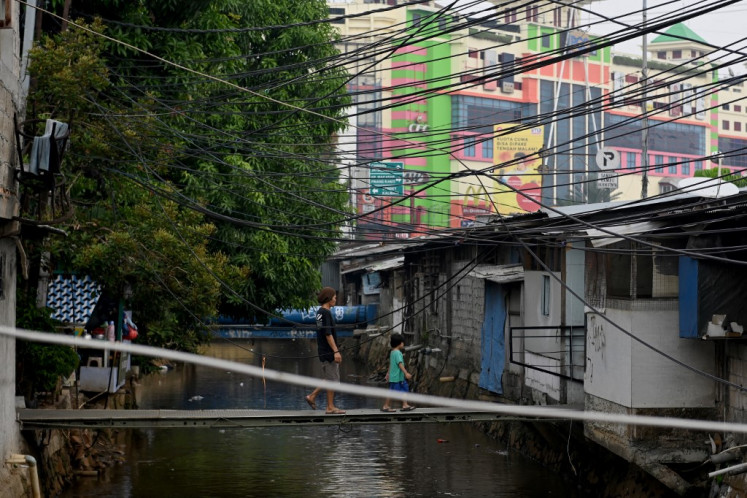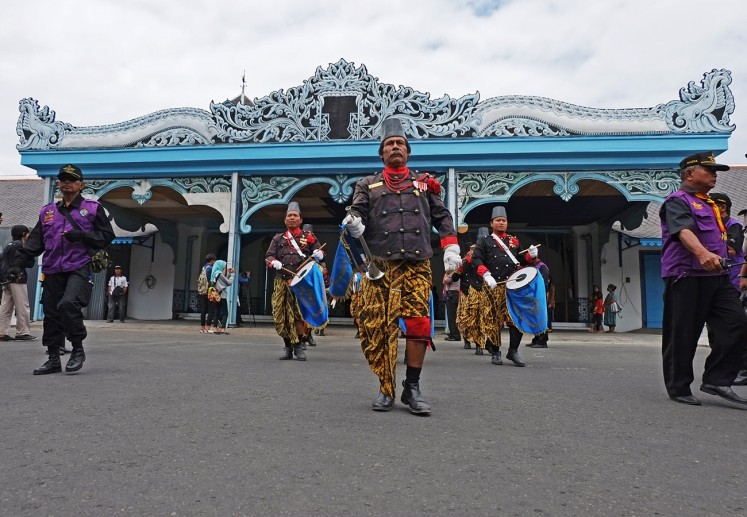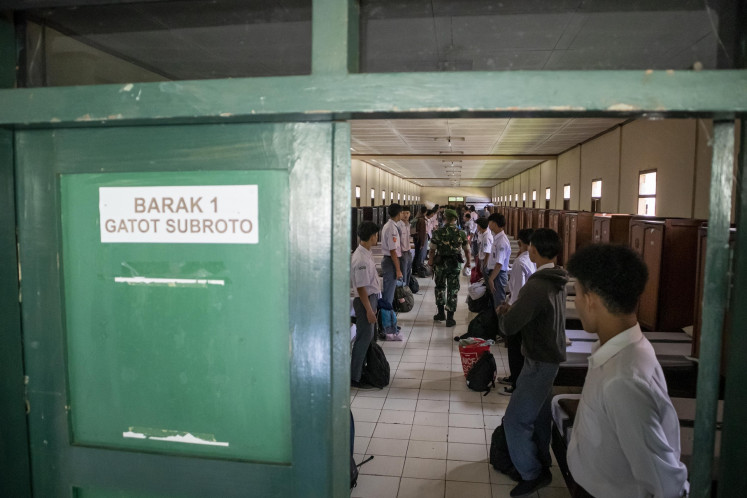Korean food products to get halal certification
Preparation: Participants use vegetables and other ingredients to make a 42-meter kimbap (Korean rice roll) during an event to promote halal Korean food in Jakarta
Change text size
Gift Premium Articles
to Anyone

P
span class="caption">Preparation: Participants use vegetables and other ingredients to make a 42-meter kimbap (Korean rice roll) during an event to promote halal Korean food in Jakarta.
The flavors of Korean cuisine have become more familiar to Indonesians, thanks to the Korean pop culture fever in recent years.
Some Korean processed food products have started to gain ground in Indonesia, appearing on the shelves of supermarkets that regularly sell foreign food.
However, as a Muslim-majority country, many may question whether it is OK to consume these products.
To resolve any confusion, Korea is trying to get its processed foods halal certified.
'When we think of entering Indonesia, we understand that 87 percent of Indonesia's citizens are Muslims. So we're trying our best to provide halal food,' said Kim Jae-soo, president of aT (Korea Agro-Fisheries and Food Trade Corporation).
A recent fair, jointly organized by the Korean Agriculture, Food and Rural Affairs Ministry and aT, was joined by 19 companies and 70 buyers from Indonesia looking to examine the business prospects of Korean food in Indonesia. Indonesia is the second country after Malaysia to stage the fair.
It opened with the making of a 42-meter kimbap (Korean rice roll) at Kota Kasablanka shopping mall in South Jakarta.
Understanding Indonesia's market potential, Baek Jin-seok, the general director of exports at aT, said Korean food companies had started to make many adjustments in order to get halal certification.
'Some companies have different manufacturing lines that produce halal food. We have 340 products that are halal certified, but only 30 that have entered the Indonesian market,' he said.
'We haven't exported many Korean products here yet, and because Indonesia is the fourth-most populous country, we presume it's a big consumer market.'
In Korea, the halal certificate is issued by the Korean Muslim Foundation (KMF), which has been in sync with Malaysian authorities and is currently undergoing a synchronization process to renew the cross-certification system with the Indonesian Ulema Council (MUI).
According to data from aT, there are 148 companies in Korea that have received halal certification from the KMF, 14 of which have also been certified by foreign organizations.
Meanwhile, there are five restaurants in Seoul and one on Nami Island that are halal certified.
In 2014, exports of farm-produced food to halal markets was valued at US$8.6 billion, while as of July this year, it reached $4.9 billion, 0.8 percent higher than the same period in the previous year.
The value of Korean agro-food exports to Indonesia was recorded at $193 million; with the most exported items including coffee creamer, corn starch, snacks, beverages, instant noodles and laver.
'Most of the exported products are still processed, and we hope we can start exporting fresh products, such as fruit, soon,' Baek said.
' Photos by JP/Jerry Adiguna
Your Opinion Matters
Share your experiences, suggestions, and any issues you've encountered on The Jakarta Post. We're here to listen.
Thank you
Thank you for sharing your thoughts. We appreciate your feedback.









